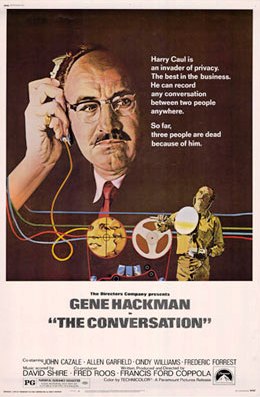 |
| Martin Sheen in Apocalypse Now |
Capt. Willard: Martin Sheen
Col. Kurtz: Marlon Brando
Lt. Col. Kilgore: Robert Duvall
Jay "Chef" Hicks: Frederic Forrest
Lance B. Johnson: Sam Bottoms
Tyrone "Clean" Miller: Laurence Fishburne
Chief Phillips: Albert Hall
Col Lucas: Harrison Ford
Photojournalist: Dennis Hopper
Director: Francis Ford Coppola
Screenplay: John Milius, Francis Ford Coppola, Michael Herr
Based on a novel by Joseph Conrad
Cinematography: Vittorio Storaro
Production design: Dean Tavoularis
Film editing: Lisa Fruchtman, Gerald B. Greenberg, Walter Murch
The familiar story of the confused and sometimes disastrous making of
Apocalypse Now has been told many times, and never better than by Francis Ford Coppola's wife, Eleanor, in her 1991 documentary
Hearts of Darkness: A Filmmaker's Apocalypse. So it's not worth going into here, except to note that the subtitle of her film plays on both the current meaning of the word "apocalypse" -- i.e., a disaster of great magnitude -- and the original one: a disclosure or revelation. It might be said that the enormous expenditure and hardship that Francis Coppola experienced during the making of
Apocalypse Now was revelatory, not only to Coppola but also to the film industry, which was reaching the limits of its tolerance of unconstrained visionary filmmaking. It would cross that limit the following year with
Heaven's Gate, Michael Cimino's film that took down a venerable production force, United Artists, along with its director. Coppola's career, unlike Cimino's, would recover, but he would never again be the director he was in his prime, with the first two
Godfather films. And American filmmaking would never again be as prone to take risks as it was in the 1970s. As for the film itself,
Apocalypse Now remains one of the essential American movies if only because it epitomizes the nightmare that was the Vietnam War. Coppola deserves much of the credit for this embodiment of Lord Acton's familiar dictum: "Power tends to corrupt. Absolute power corrupts absolutely." But there are others who should share the credit with him, including screenwriters John Milius and Michael Herr, who made the connection between Joseph Conrad's tale of imperialism gone wrong,
Heart of Darkness, and the war. The ambience of the film is largely the work of production designer Dean Tavoularis, cinematographer Vittorio Storaro, who won a well-deserved Oscar, and Walter Murch and his sound team, who also won. And while Marlon Brando's Kurtz is a disappointment and Martin Sheen never quite meets the demands of his role as Capt. Willard, they are surrounded by marvelous support from Robert Duvall, Frederic Forrest, Dennis Hopper, and a very young and almost unrecognizable Laurence Fishburne (billed as Larry), among others.














